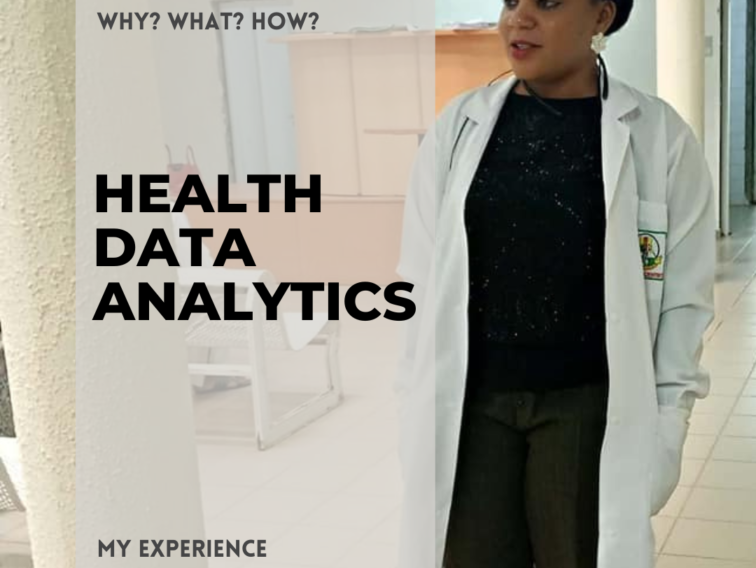In my 4th year as an Undergraduate Biomedical Laboratory Science student at the University of Ibadan, we had run through some samples in Haematology and found an adult who had a persistent elevated level of Fetal hemoglobin (HbF) with genotype results reporting FS instead of AS or AA and the likes.
HbF is the main type of hemoglobin present in the fetus and is gradually replaced by adult hemoglobin (HbA) after birth. At that time, I never knew that in some individuals especially those with SCD, there could be a persistence of elevated levels of HbF throughout their lives.
This intrigued me and prompted my undergraduate project topic in my 5th year: “Evaluating the Levels and Distribution of Fetal Hemoglobin in Sickle Cell Disease Patients attending the University College Hospital, Ibadan”. I worked with both children and adult patients using the Betke et al method to evaluate the levels of HbF and acid elution test of Kleihauer to determine the intracellular distribution of the fetal cells.
The level of Hb F in sickle cell disease patients is known to vary and Hb F has been used to predict the clinical severity of the disorder. The prediction of severity based on Hb F is however not absolute since there is an interplay between Hb F and other genetic factors.
In the study, I intended to Determine the level of fetal hemoglobin in sickle cell disease patients attending the adult Haematology and Child Out-patient Haematology clinic of the University College Hospital Ibadan, determine the intracellular distribution of fetal cells in sickle cell disease patients attending the adult Haematology and Child Out-patient Haematology clinic of the University College Hospital Ibadan, study the relationship between the distribution of fetal cells and level of fetal hemoglobin in sickle cell disease and ascertain the prevalence of HPFH in the Nigerian population.
HbF plays a significant role in sickle cell disease (SCD) patients and can have a positive impact on their condition. SCD is a genetic disorder characterized by abnormal hemoglobin, specifically hemoglobin S (HbS), which causes red blood cells to become rigid and assume a sickle shape, leading to various complications.
However, this elevated HbF has a beneficial effect on SCD patients for several reasons:
Inhibits Sickling: Fetal hemoglobin has a different structure than adult hemoglobin and is less prone to forming the characteristic sickle shape. The presence of HbF can help prevent the sickling of red blood cells, reducing the frequency and severity of painful crises and other complications associated with SCD.
Increases Red Blood Cell Flexibility: Higher levels of HbF improve the flexibility and deformability of red blood cells. Flexible red blood cells can flow more easily through small blood vessels, reducing the risk of blockages and improving blood circulation.
Reduces Polymerization of HbS: Fetal hemoglobin can interfere with the polymerization process of HbS, which is a key event in the sickling of red blood cells. By inhibiting HbS polymerization, HbF helps maintain the normal shape and function of red blood cells.
Provides a Reservoir of Healthy Hemoglobin: The presence of elevated HbF in SCD patients ensures that a portion of their hemoglobin remains unaffected by the abnormal sickle hemoglobin. This provides a reservoir of healthier hemoglobin, contributing to better oxygen delivery and overall red blood cell function.
A few years after this project, I took an interest in Health Data Analytics and how it is essential in Nigeria and Africa for public health planning, disease surveillance, resource allocation, monitoring and evaluation, research, and addressing health disparities. By harnessing the power of data, Nigeria can make informed decisions, improve healthcare services, and ultimately enhance the health and well-being of its population.
My study had shown me that understanding the data regarding the levels and distribution of fetal hemoglobin (HbF) in sickle cell disease (SCD) patients is crucial for the development of effective treatments. This is just the same for almost any other disease.
I didn’t just randomly choose to include Data Analytics to my skill stack. I knew it was pivotal to give actionable insights to solve health challenges in the continent. I have experienced my share of health challenges and I really want to contribute to effecting a change.
Health data analysis is crucial for improved healthcare as it enables informed decision-making, early detection and prevention of diseases, targeted interventions, quality improvement, resource optimization, and continuous monitoring and evaluation. By harnessing the power of data, healthcare systems can drive positive change, enhance patient care, and work towards achieving better health outcomes for all.
If you have a project working on leveraging Health Data Analytics to solve Health issues, please send me an email, I’d like to work with your team.




